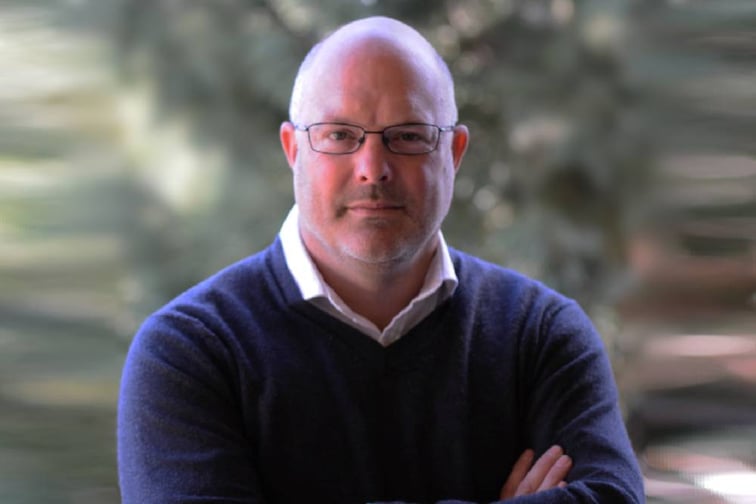

Twenty-one products on the ‘Powered by Agile’ online platform, with 20 more currently in development – that’s where Lloyd’s coverholder Agile Underwriting Services stands at present, and here chief executive and head of underwriting Robin Barham (pictured) sheds light on the factors contributing to the agency’s success when it comes to delegated underwriting.
“We’re making real progress getting new binders and new capacity in new areas [at a time when] binders have been disappearing and capacity has been leaving the market rather than coming in,” said Barham in an interview with Insurance Business. “So, it’s particularly satisfying to have Lloyd’s syndicates backing us with new capacity.”
One of the advantages cited by the CEO is the vast experience across its underwriting roster.
He asserted: “All of us have been in senior positions in Lloyd’s syndicates and are therefore known in the London market. And that really helps because when capacity is difficult, that’s when relationships really matter.
“We’ve always said that we’re a relationship-built underwriting agency. We’re interested in strong long-term partnerships, and we say that to our brokers and also to our insurers. A lot of our insurance capacity providers are people that we’ve known for decades and we’ve worked with in the London market or elsewhere.”
Barham himself, up until two years ago, was working for Lloyd’s syndicates while running now six-year-old Agile. He co-founded the Sydney-based underwriting agency, to which Barham brings decades of industry experience including time spent in London before his Australian move.
The Agile boss is of the view that the trust that rests in the relationships that people have is crucial. “It makes a difference and allows you to get deals done,” he said.
Meanwhile, Barham also pointed to changes in the London market, among which is the increase in capacity this year over 2020. Although, generally speaking, according to the underwriting head, capacity is still very difficult to get on binders.
Barham noted: “Syndicates are putting their syndicate business forecasts together for next year, and I expect that they will be asking for more given that we’re at the top of, or in a rising market. So, pricing is good, and now is the time for people to be looking to write business, as long as it’s profitable business.”
“[The ‘decile 10’ crackdown] led to a number of syndicates having to rewrite their business plan or pull out of some classes, and some underwriters in London lost their jobs,” Barham went on to state. “That led to a general lessening of capacity, or at least withdrawal of capacity that was delegated back to the underwriters on the box wanting to deploy that capacity themselves personally. And that’s understandable. But now that the underlying underwriting results have improved, there is appetite.
“And the interesting thing about the global insurance market is there’ll always be somebody who, when times are hard for underwriter A, underwriter B will go, ‘Oh, well, there’s an opportunity for me to step into that space’.”
The insurance stalwart said there is engagement now with insurers to discuss niches of business where underwriting profit can be achieved.
“Our job as an underwriting agency is to be their eyes and ears on the ground and to spot those opportunities and talk them through how they might maximise it,” Barham told Insurance Business.
“It’s very difficult to have those kinds of conversations when you’re an underwriter who has been told they’ve got to reduce their book. So, they had different problems to deal with a couple of years ago. But now that that has consolidated and a lot of the issues that were in play have been addressed by pricing or by reductions in the amount of friction costs in the system, people are keen to move on.”
He also made special mention of the Future at Lloyd’s initiative, which Barham believes is about trying to secure the exchange’s place in the global insurance market and make sure that Lloyd’s is seeing the business that it wants to see.
The CEO, whose camp is in constant conversations with markets, added: “I think another reason why we’ve been able to get new binders in place is because we’re now five and a half years into underwriting for capacity providers for some of our classes, and so they’re starting to say, ‘What else can we do together?’
“We’ve had binders where we’ve had approaches from the syndicates who say, ‘We’d like to do this; would Agile do it for us?’ And we’ve had binders where we’ve gone to them with a business plan and said, ‘Look, what’s your appetite in this space, because we think we can do this for you profitably’.”
Either way, Barham is thrilled to be part of an industry that allows these things to take place.
“It’s an exciting industry to be in – we are very privileged to get the access that we do to our customers’ business,” he declared. “We need to exercise that privilege very carefully and make sure that we do the right thing by people.
“But what a wonderful industry it is to work in, because we have the ability to support economy and companies and make things happen. People put their heart and soul into building businesses and building their assets, and we have the ability to work alongside them and help them achieve their dreams.”
Barham stressed: “You can’t run medical trials without insurance. Doctors and nurses can’t work in hospitals without insurance. Goods can’t get shipped and you won’t have any food or toilet paper in Woolworths if the freight and cargo industries aren’t insured. We’re a critical enabling industry.”
